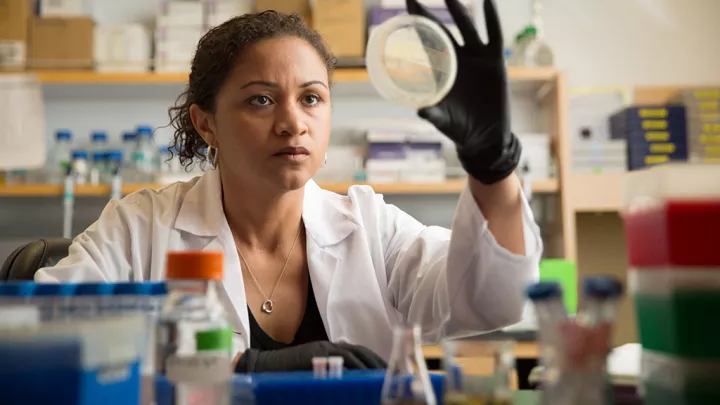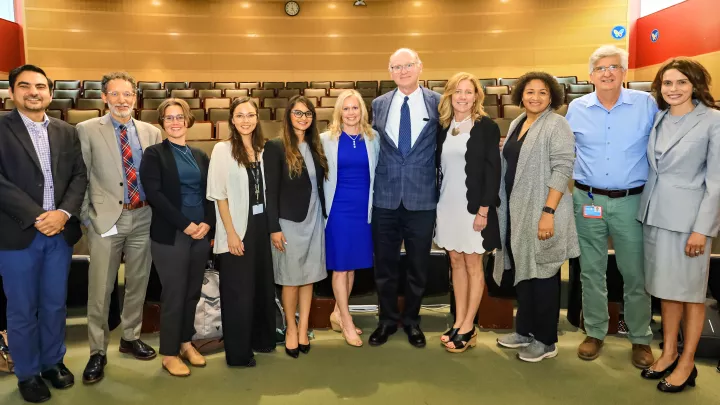Research Topics
- Pancreatic beta cells
- Diabetes
- Regenerative medicine
Research Overview and Key Findings
Three million people in America have Type I diabetes, an autoimmune disease that destroys the insulin-secreting cells of the pancreas and results in an inability to regulate blood sugar levels. While insulin injections and other pharmaceuticals help patients manage their diabetes, there is no definitive cure. A potential cure for diabetes may be a cell replacement approach to replace lost insulin secreting cells. Currently, the only cell-based therapy for diabetes is islet transplantation, which is limited by an insufficient supply of islet donors, the requirement to be on long-term immunosuppression, and eventual reoccurrence of insulin dependence.
One way to overcome the challenges of islet transplantation would be to use a patient’s own adult stem cells to make new insulin-secreting cells. This approach would overcome limited donor supply, not require immunosuppression, and be able to be renewed if patients became dependent on insulin therapy in the future.
The Georgia Lab uses a three-pronged approach to design novel strategies for making new insulin-secreting cells:
- Use of in vivo models to study how insulin-secreting cells can duplicate themselves to respond to increased demand for insulin. The lab plans to use this knowledge to design strategies to increase the number of insulin-secreting cells that remain in the pancreas of Type I diabetic patients
- Use of in vivo models to study how insulin-producing cells emerge from stem cells during fetal development. By improving the understanding of how these cells are formed, they plan to direct non-pancreas cells to differentiate into insulin-secreting cells in the lab.
- Lab members apply the principles learned from these in vivo models to human adult gut stem cells. They plan to reprogram human gut stem cells into pancreatic insulin-secreting cells. The Georgia Lab is one of the few labs in the world that has established methods to genetically manipulate human gut stem cells ex vivo, therefore bringing us one step closer to having an individualized and renewable transplantation approach that would not require long-term immunosuppression for patients.
Taken together, this three-pronged approach studies the basic biology of insulin-secreting cells and translates that knowledge into potential cell replacement strategies for Type I diabetic patients.
Current Funding
- K01 NIH/NIDDK - The 81 million Americans that are diabetic or are pre-diabetic suffer from the condition because the body's insulin-producing cells, either because of autoimmune destruction or the inability of the cells to function properly, are unable to maintain normal blood sugar levels. The studies in this grant are targeted to understand how functional insulin-producing cells normally reproduce themselves. Results from these studies will contribute to the design of therapies to generate more insulin- producing cells as an effective cure for diabetes.



